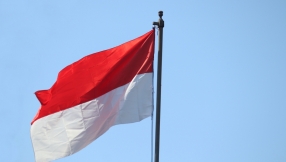Global Warning
Climate patterns are already changing dramatically in developing countries and the knock-on effects are disastrous for the millions of people who now face multiple crop failure, flooding, hurricanes, drought, displacement, disease and starvation.
In the run up to the crucial UN summit, Christian Aid is calling on industrialised countries to make a 20 per cent cut in their national carbon emissions by 2020, and at least 80 per cent by 2050.
Christian Aid is also pressuring these countries to share new technology, to help fund equivalent carbon emission reductions in the poorest nations, and to set up an international adaptation fund to help them adjust to sustainable, low-carbon development.
Some climate change case studies
|PIC1|Hadja Sala Diallo, Senegal
Annual income per person: US$1,792
*(compared to: United States US$ 41,890, UK US$33,328, Republic of Ireland US$38,505)
Carbon emissions per person: 0.4 tonnes
*(compared to: United States 20.6 tonnes, UK 9.8 tonnes, and Republic of Ireland 10.5 tonnes)
Hadja is married with six children. She is a member of the Fulani tribe, cattle herders from north Senegal. Since the 1970s her homeland has suffered from increasingly severe and frequent droughts as a result of climate change.
She gets all of her family’s water from a borehole 7km away, but with 30 villages sharing it, she often waits long hours for her turn due to a huge shortage of wells.
Hadja is illiterate but trained in textile dyeing which she wants to use to make money – but of course this requires water.
“Every day we need water – two barrels containing 400 litres, one-and-a-half barrels for the cattle, and half a barrel for the family,” she says.
“The priority is to drink but I can spend all day waiting for water.”
|PIC2|Audelia Ramos, Honduras
Annual income per person: US$3,430
Carbon emissions per person: 1.1 tonnes
Grandmother and coffee grower Audelia Ramos lives in Santa Rica, a hillside village in Honduras where destructive hurricanes and flooding are now an increasingly regular threat.
Over the past 35 years, storms with the same force as Hurricane Katrina have almost doubled in frequency, with climate change scientists blaming sea surface temperature rises resulting from climate change.
Santa Rita is situated by a river, the banks of which have been deforested over recent years, making the threat of landslides another huge concern to the local community.
“When I was growing up, the mountains were covered in trees, not naked like they are now,” Audelia explains.
Minu Basar, Bangladesh
Annual income per person: US$2,053
Carbon emissions per person: 0.3 tonnes
In Minu’s hometown of Kayabunia, Bangladesh, rising seawater levels are contributing to land erosion and salination of water supplies.
|PIC3|Minu and her husband used to have 30 hectares of land but, due to river erosion, are now landless. The salty water is impossible to drink, they can’t wash their food in it, and it has killed their mango trees, so Minu collects rainwater.
When this runs out, she has to cross a wide and often dangerous river, travelling up to 10km to buy fresh water. It could take her a whole day to fetch her family’s minimum daily requirement of 40 litres.
Global climate change: a brief overview
Central and South America
In Brazil, where the on-going destruction of the Amazon rainforest is contributing hugely to rising carbon emissions and global warming, Christian Aid works with local partners on land rights, actively encouraging indigenous Amazonians to take a strategic role in the long-term protection of the forests.
Elsewhere, increasingly extreme and unpredictable weather patterns in El Salvador, Honduras, Guatemala, Peru, Bolivia and Nicaragua, have resulted in flooding, crop failure, and devastating hurricanes.
Through a number of experienced local NGOs in each country, Christian Aid helps local communities to adapt to the impacts of climate change by training village committees to cope with emergencies such as flash floods, as well as improving their agricultural practices through tree-planting, restoring natural pasturelands, building terraces, collecting and retaining water more efficiently, and introducing flood-resistant crops.
Christian Aid is also helping communities to build vital drainage pipes and bridges, and to develop long term ecological projects such as recycling and reforestation.
Asia
Year on year, as typhoons increase in severity and temperatures warm up, poor communities in the Philippines are finding it difficult to protect their crops from devastation.
Thanks to the loans and support of Christian Aid’s partner Marinduque Council for Environmental Concerns (MACEC) on the island of Marinduque, people are now profitably farming butterflies, a far more climate change resilient alternative. The butterflies are then exported for tourist attractions and even released at weddings.
In Tajikistan, Christian Aid’s local partner, The Youth Ecological Centre works with young people to lobby and campaign on environmental issues concerning renewable energy, energy efficiency and climate change, as well as installing solar panels in schools and other public buildings.
To help farmers in India to adjust to the effects of climate change, Christian Aid’s partner, Development Research Communication and Services Centre (DRCSC), works in 12 districts of West Bengal to promote seed banks, vegetable ‘nutrition’ gardens diversification of crops, and reforestation of river banks.
Likewise, in flood-prone Bangladesh, Christian Aid is helping to build resilient communities that are better prepared to deal with rising water levels and the erosion of river banks.
Africa
In drought-prone eastern Kenya, Christian Aid partner UCCS is working to address problems of water availability. As well as changing farmer’s crop planting patterns a new strategy is the construction of sub-surface dams to help improve water supplies.
In north east Kenya, Northern Aid are responding to this year’s devastating drought by providing fresh, clean water to former nomadic communities who have been forced to settle by the dusty roadsides in a desperate bid to find water.
Since 2005 Christian Aid partners in Zimbabwe have been working with communities to improve their farming methods and, to date, at least 5000 farmers have been trained and report significant increases in yields of sorghum, millet and maize.
This article was supplied by international development agency Christian Aid which continues to take action to tackle climate change in the lead up to the UN summit in Copenhagen this December. For more information click please here
www.christianaid.org.uk/copenhagen













